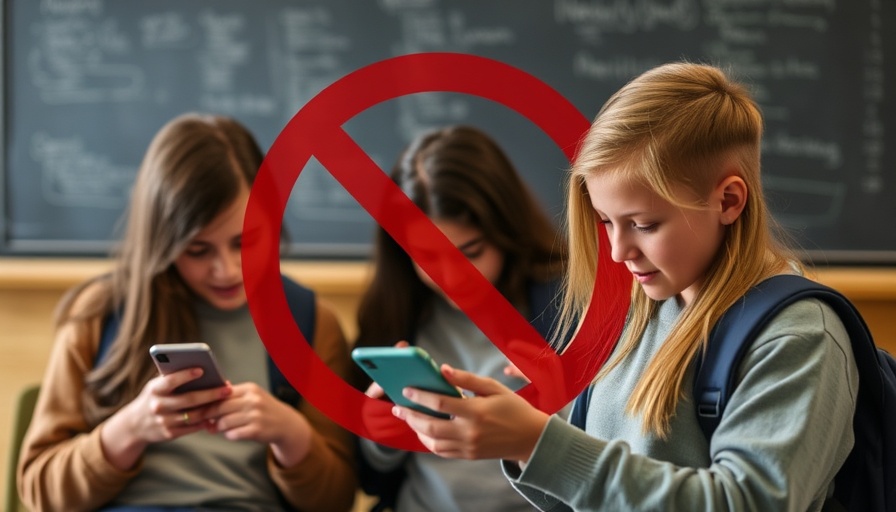
The Reality Behind Smartphone Bans in Schools
Many schools around the globe have implemented smartphone bans, believing it would lead to improved mental health and reduced screen time among students. However, recent research suggests that these bans do not correlate with better mental wellbeing or lower screen time outside school.
Understanding Mental Wellbeing in the Digital Age
The idea that limiting smartphone access during school hours will enhance students’ mental wellbeing seems logical. Yet, evidence shows that merely restricting phone usage in classrooms may not effectively address its broader impact on mental health. Stressors related to academic pressures, social interactions, and external expectations often overshadow the effects of phone access.
Is There Another Way to Tackle Screen Time?
Smartphone use among teenagers and children is prevalent and often linked to social interaction rather than isolation. Instead of blanket bans, a better approach might involve teaching students how to manage their screen time responsibly. Guided education on digital wellness could help children learn to balance their online and offline lives, potentially leading to healthier outcomes.
What the Research Tells Us
Studies indicate that the effects of smartphone use on mental health are complex and multifaceted. For many students, smartphones are essential tools for communication, and complete removal can create feelings of exclusion. By focusing on education rather than restrictions, students might develop healthier relationships with technology.
Addressing Common Misconceptions About Smartphone Usage
It is vital to dismantle the assumption that increased screen time directly leads to poor mental health. Research highlights that not all screen time is detrimental; social media can foster community and support among teens. Encouraging parents and educators to consider the qualitative aspect of screen time might enhance discussions around its usage.
Moving Towards a Healthier Digital Environment
To effectively manage screen time and mental wellbeing, collaborative efforts between educators, parents, and mental health professionals are crucial. Implementation of workshops and resources that promote digital literacy can provide students with the tools they need to thrive both online and offline.
Ultimately, rather than outright banning smartphones, fostering an understanding of their responsible use appears to be a more promising path to support students’ mental health.
Take Action: As we delve deeper into the digital age, it’s essential to foster open dialogues about responsible tech use. Consider advocating for educational programs in your community that prioritize mental health and responsible screen time management for a balanced approach to technology.
 Add Row
Add Row  Add
Add 




 Add Row
Add Row  Add
Add 

Write A Comment